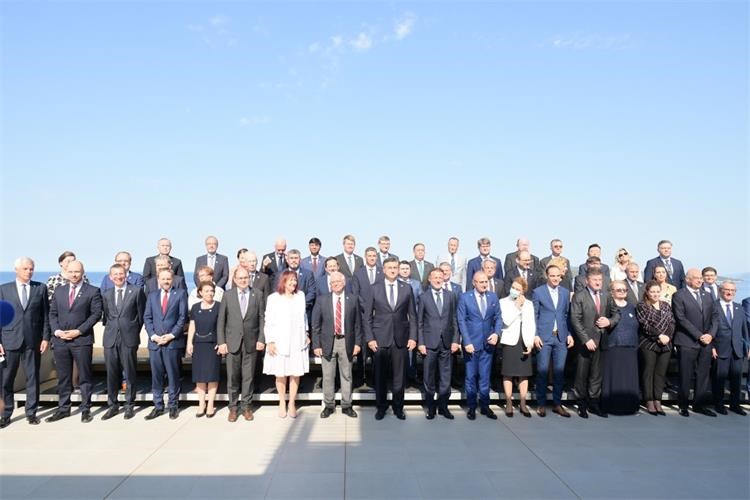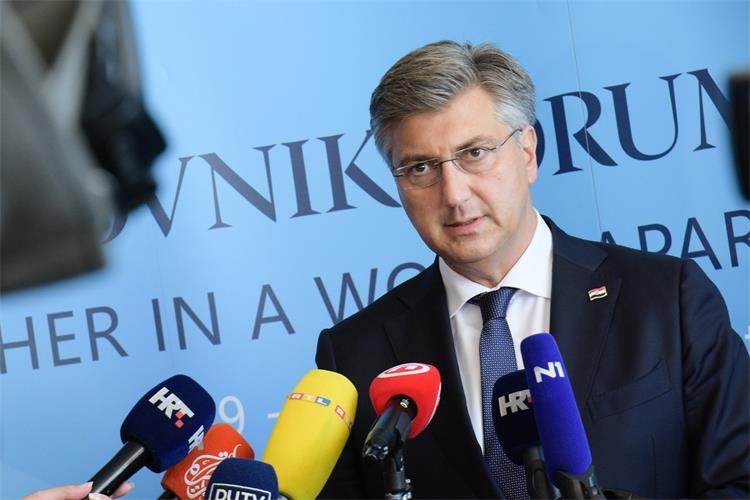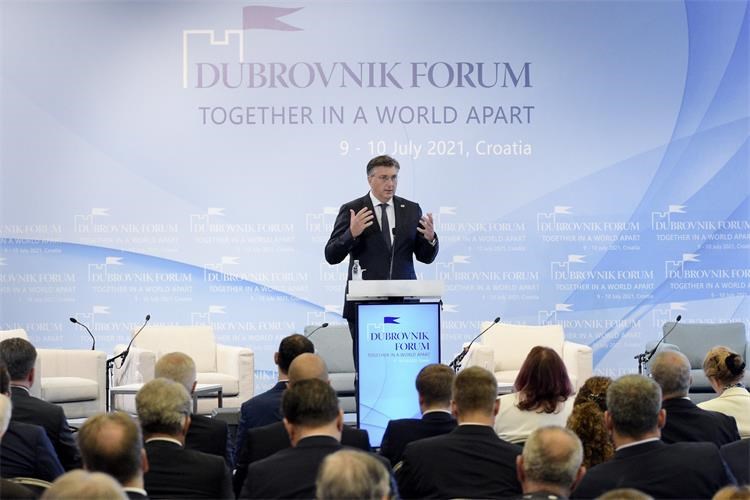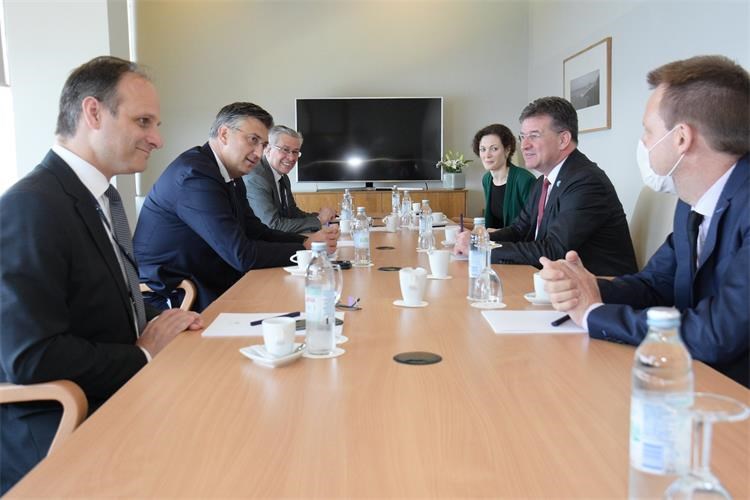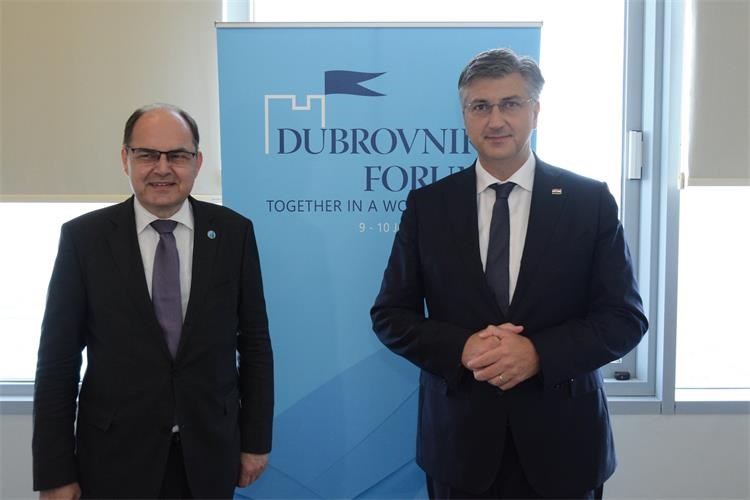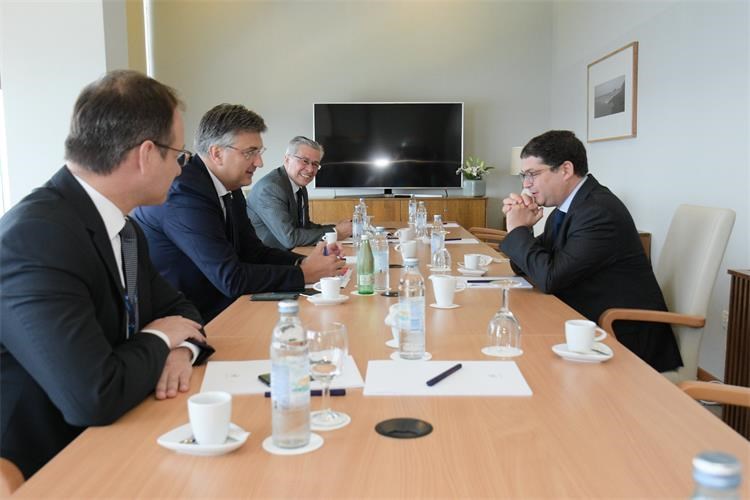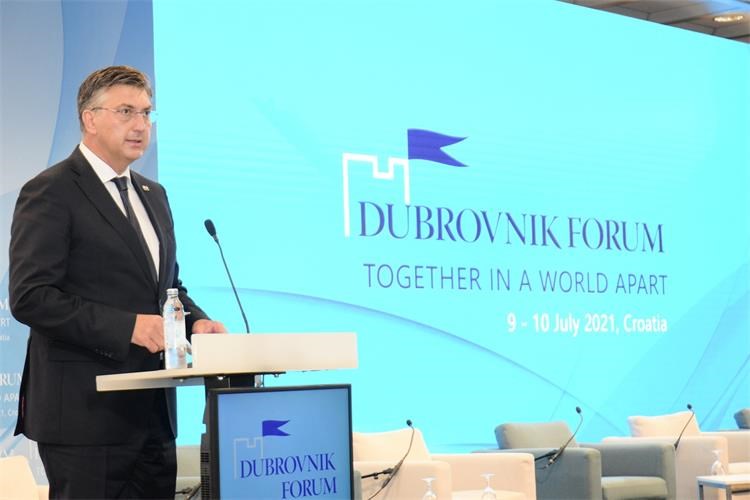- Published: 10.07.2021.
Coronavirus crisis tested countires worldwide, it required leadreship and vision going forward
Croatia has managed to preserve its firm financial reputation, while weathering the COVID-19 pandemic and the consequences of the 2020 devastating earthquakes, Prime Minister Andrej Plenković said in his speech at the 14th edition of Dubrovnik Forum on Saturday.
The fourteenth annual international conference titled "Dubrovnik Forum: (Post)-Pandemic Geopolitics - Together in a World Apart" focused on the impact of the COVID-19 pandemic on the geopolitical relations and global economy. The programme includes three panels: "Unmasking the Geopolitics of a Post-Pandemic World"; "The International Community and the Western Balkans: How to End the Quarantine?"; and, "European Union, Three Seas Initiative and 17+China: How to support Central and Eastern Europe’s economic growth and societal development?".
Addressing the forum, PM Plenković said that Croatia's financial reputation remained firm owing to good results in the pre-pandemic period.
After being hit by the coronavirus pandemic and the devastating earthquakes, Croatia is now learning how to endure the pressure and tap considerable financial funds so as to provide the citizens with the real development that is evolving into two directions: admission to the Schengen Area during 2022, and the full readiness in 2023 for the admission into the euro area, he said.
The Croatian PM underscored the importance of international cooperation, notably joint efforts within the European Union.
The prevailing opinion of European leaders last summer was that we were faced with a huge problem that required the proper solution. The only way to find the solution for that big problem was to make agreement on the EU Next Generation instrument and withdraw a great amount of money for the recovery, Plenković explained.
He recalled that the European Commission had recently given its greenlight to Croatia's National Recovery and Resilience Plan, worth €6.3 billion, which could significantly boost the country's Gross Domestic Product and create 21,000 new jobs by 2026.
The greenlight from Brussels is an important step towards the EU disbursing funds in grants and loans under the Recovery and Resilience Facility (RRF).
The EU plan for the recovery from the COVID-19 pandemic was described by the Croatian prime minister as the wisest move.
He also recalled that at the onset of the pandemic, Craotia did not have enough equipment and protective clothes to address the crisis. Only one telephone call to Chinese Prime Minister Li Keqiang was enough and the problem was solved, the Croatian PM added.
During his key-note speech Plenković said that the developments in the western Balkans was one of the topics of the Dubrovnik event and he reiterated his support to Balkan countries' striving for EU membership.
He expressed hope that Bulgaria and North Macedonia would find a solution to their bilateral dispute as soon as possible.
The time has ripened for Albania and North Macedonia to finally start their accession negotiations, he added.
PM recalled that Croatia perceived Bosnia and Herzegovina as its most important neighbour in the historical, geographic and cultural sense.
We support the current process that is being conducted with the assistance of the USA and the European Union in relation to efforts to amend the election law in that country. We believe that this issue should be settled and that institutions should include legitimate representatives (of constituent peoples) and that we should comply with the letter and law of the Dayton Agreement, Plenković said.
All the three constituent peoples should be equal, and the moves being taken since 2006 have not made Croatia happy. We do not think that such moves are conducive to the good functioning of Bosnia and Herzegovina, he said.
Croatia also supports reforms being taken in other EU membership aspirants: Montenegro, Serbia and Kosovo.
Plenković conveyed Croatia's readiness for the strengthening of cooperation in the Mediterranean region and announced that in September Croatia and Slovenia could join the informal group of Mediterranean countries called MED 7.
Text: Hina
